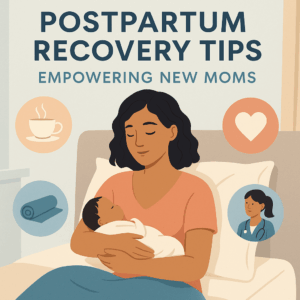The Benefits of Having a Breastfeeding Meal Plan

You probably know that breast milk comes with a variety of benefits for your baby. It contains nutrients that will help your baby develop. Babies who breastfeed also have a lower chance of developing infections, allergies, and dental issues. Plus, breastfeeding allows you and your child to bond.
Because breast milk is so beneficial for your baby, you may be wondering if what you eat affects the quality of your milk. While your diet doesn’t have a huge influence on your breast milk, it’s still important to maintain a healthy, balanced diet for you and your baby. A breastfeeding meal plan can help you do that.
Focus on nutrition, not weight
After you have a baby, it’s understandable to think about losing weight and getting back into shape right away. However, it’s best to focus on eating healthy through a proper diet rather than shedding your baby weight. Remember that moms who are nursing need extra healthy calories to replace those lost in breast milk. You secrete up to 700 calories into your breast milk daily, so your intake should be around 3000 calories per day. You are feeding two people, after all! Restricting your meals in order to lose weight can deprive you and your baby of essential nutrients and vitamins.
Make these nutrient-rich foods a part of your diet
Some nutrients in your food can directly affect their presence in your breast milk, while other nutrients are transferred to your milk regardless of how much you consume. Eating a balanced, healthy diet every day is the best and safest way to ensure you and baby get the nutrients you need.
Protein
Try to get 3 servings of protein per day by eating protein like fatty fish, poultry, beans, eggs, or nuts. You might have eggs for breakfast, salmon for lunch, chicken for dinner, and snacks like peanut butter or mixed nuts throughout the day.
Vegetables
Three servings of veggies per day is best. Try leafy greens like spinach and kale, sweet potatoes, or veggies like squash and avocado. You can add leafy greens to breakfast omelets or sneak them into healthy smoothies. Be sure to eat veggies on the side at lunch or dinner. Have a variety of colorful vegetables for their antioxidants, vitamins, and minerals.
Fruit
Eat 2 servings of fruit daily. Fruits like blueberries are packed with vitamins and antioxidants, while oranges provide a boost of vitamin C. Fruits like bananas are also a source of healthy carbs. And if you’re having trouble lactating, apricots and dates can increase prolactin, the hormone that signals milk production.
Dairy
Since your breast milk is loaded with calcium, vitamin D, and B vitamins, you’ll need to replenish those minerals to meet your own needs. Include at least 3 servings of dairy in your diet from milk, cheese, or yogurt. Even if you’re lactose intolerant, for many women the ability to digest lactose improves when you’re pregnant. If it doesn’t, try small portions of cheese and yogurt at first, consider taking a calcium supplement, or have other calcium-rich foods like chickpeas, almonds, tofu, or spinach.
Whole grains and complex carbs
Healthy whole-grain and complex carbs can help keep your energy up, so try to get 3 servings each day. That includes pasta, whole-grain breads, quinoa, or oatmeal. Whole-grain bread with peanut butter or almond butter can be a quick and easy breakfast. Have pasta with veggies and protein for lunch, and a grain bowl with fish for dinner. Oats also seem to help with milk supply, and they’re pretty easy to add into your diet: oatmeal, cookies or muffins with oats, oat banana bread, the opportunities are endless.
Water
Don’t forget to stay hydrated! A cup of water at every nursing session can help you get enough water every day. Drink when you’re thirsty, and drink enough water each time to quench your thirst. If you feel tired, or your milk production has seemed to slow, try drinking more water. Your urine will be dark yellow and have a strong smell if you’re not getting enough water. And be mindful of caffeinated drinks like coffee or tea. Having more than 2 to 3 cups per day can affect your breast milk and your baby’s sleep quality.
Plan ahead, and don’t be too hard on yourself
Maintaining a healthy diet on top of everything else you need to think about as a new mother can be overwhelming. We understand! Remember that it’s okay to slip up on your diet, as long as you get back on track. Planning your meals ahead of time can make your diet more manageable. You can take one day during the week or over the weekend to cook a big batch of dinners, prep ready-to-eat meals like salads, or bake snacks like lactation cookies or breakfast muffins. Planning meals ahead and having healthy snacks on hand makes it easier to avoid processed, unhealthy foods.
Sticking to a healthy and balanced diet while breastfeeding is important. When you make it a habit to eat nutritious foods throughout the day, it will seem less like a chore with practice. If you need more guidance on creating a breastfeeding meal plan, or tips on breastfeeding, contact Maternal Instincts. We’re here to help.
[elfsight_youtube_gallery id=”5″]


